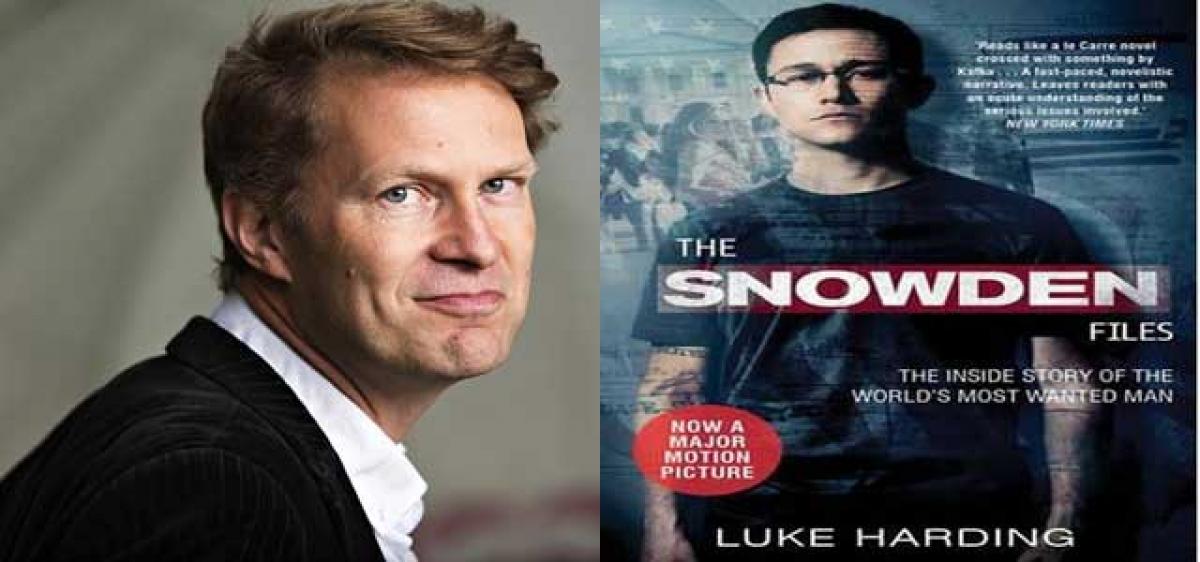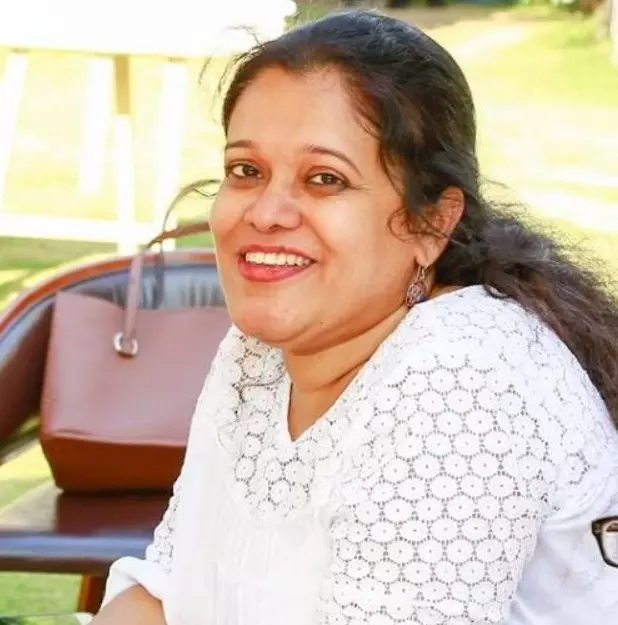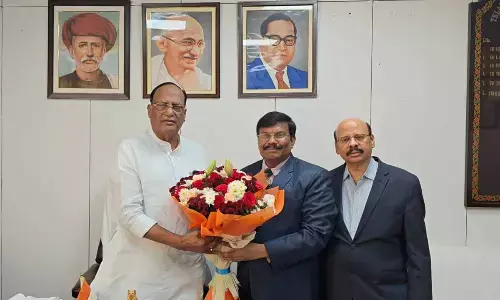Working with Snowden Files

The Inside Story of the World’s Most Wanted Man’ by Luke Harding, the Guardian journalist, who was one among the few scribes, who poured over the scores of NSA documents that were leaked by Edward Snowden in 2013, wrote the story of the man and published the book in 2014.
Luke Harding’s account of whistleblower Edward Snowden’s epic leak of classified information, in his book ‘Snowden Files’, reveals the making of one of the biggest controversies in the world, leading to a film-adaption
The Snowden Files: The Inside Story of the World’s Most Wanted Man’ by Luke Harding, the Guardian journalist, who was one among the few scribes, who poured over the scores of NSA documents that were leaked by Edward Snowden in 2013, wrote the story of the man and published the book in 2014.
The movie ‘Snowden’ is based on Luke’s book and yet another fictionalised account – ‘Time of the Octopus’ by Snowden’s lawyer from Germany Anatoly Kucherena, and was released last year.
Snowden was working in the capacity of a consultant with NSA. On May 20, 2013, Snowden flew to Hong Kong with classified documents (allegedly over a million) and handed it over to three journalists Glenn Greenwald, Laura Poitras and Ewen MacAskill.
The Guardian office in London commissioned a group of journalists that included Luke Harding to pore over these documents in a secret bunker manned by bodyguards. They were threatened and intimidated by governments.
The journalists knew there were on one of most important scoops of the times, and had little time. It was hard job to swim through enormous data and the revelations shocked the world. NSA along with its UK counterpart GCHQ with the help of telecommunication companies had been intercepting cables and collecting data from across the world – of all digital communication.
NSA defended its action and said it was imperative to carry on the surveillance to counter terrorism. But, the fact that the monitoring of data puts every world citizen under its radar, and there is no such thing as private, is scary.
While the breach of security that Snowden has indulged in is viewed by many as service to mankind (Luke Harding being one of them); after all people needed to know that there is someone always watching what we do; there are a few others, who think what Snowden has done is to put several lives at risk, and leak important intelligence information.
He has been charged of treason, and cannot enter the US and the UK. He has been provided with temporary asylum in Russia. Snowden says he has handed over all the documents that he stole from NSA; yet, there is a speculation that he may still have over a million of documents with him that may fall into wrong hands.
Luke Harding was at Jaipur Literature Festival. He spoke of his experience of working over the NSA documents over a quick chat. “Snowden’s mission was clear. He had told the journalists that he wanted people to know about mass surveillance of the civilians and not to target the intelligence information.
It was a difficult job, but we found that Obama was spying over citizens of every country. Everyone’s data was being collected – email, text message, search history, location data – was all being collected and stored to be used when it was felt necessary. We know Facebook handed over information under legal threat. Google did the same,” he affirmed.
“It’s better we go back to traditional methods of keeping notes with a pen and a paper. I mostly work offline. Do not share anything private on your mail,” says Luke.
He agrees that what Snowden has done has been hugely successful, and the future generations will thank him for it- however – he says not much has changed. “In fact it only may have worsened. But now, we know about it, talk about it and question it. What we can do is try, and lessen our digital activity.”
While so much of Luke’s writing is on Snowden, he could never meet the much discussed man as he is not allowed into Russia. He was with Guardian’s Russian bureau for four years and was expelled due to his anti-government reporting in 2012.
Luke spoke of how difficult it was for his family to live in Russia where they were under constant surveillance. There were break-ins at their flat, computer would be tampered with, and the apartment would be bugged. It was zero privacy and totally intimidating to be harassed so by FSB. And he doesn’t expect things to be much different for Snowden either, in Russia.
Even as the debate continues to rage over the action of the 29-year-old computer geek, who one fine day decided to be a whistle blower – Luke Harding in his most recent interview revealed his new book based on Alexander Litvinenko, a former Russian spy who had defected to England and was killed by poisoning – his tea was laced with a radioactive poison. His new book is called ‘A Very Expensive Poison’.














